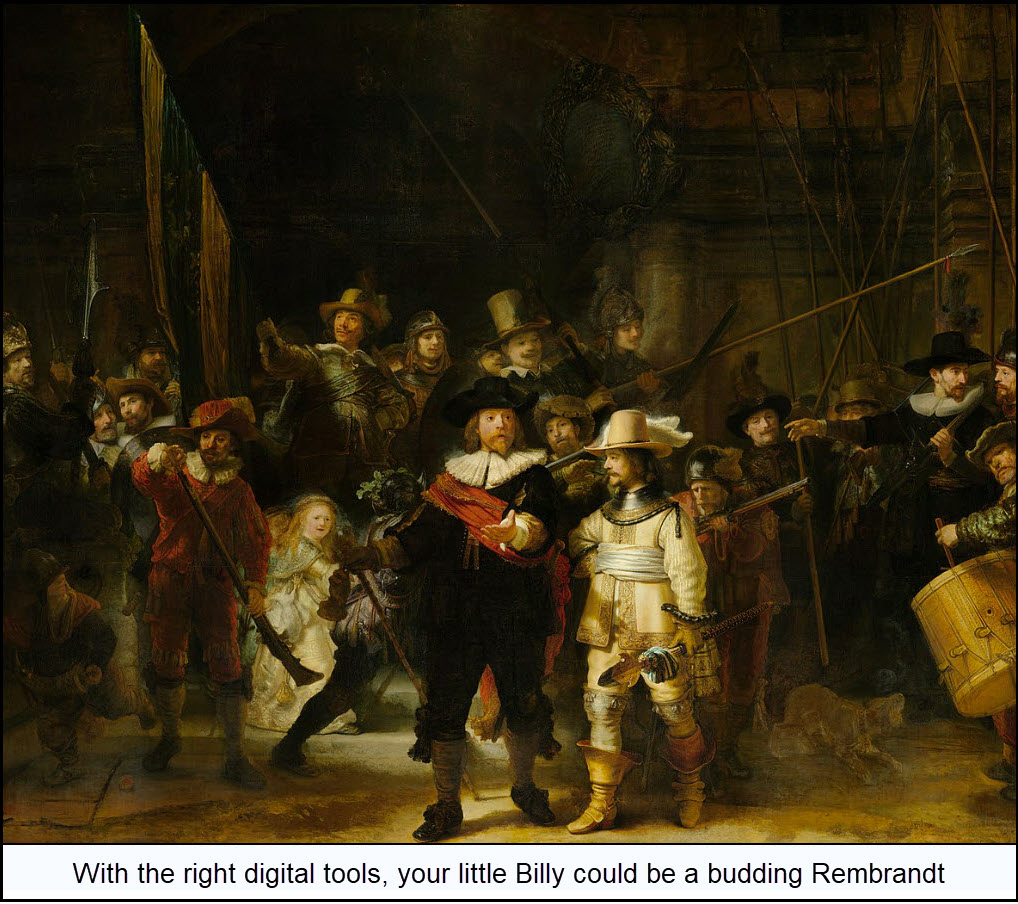 AI hubris has become America’s chief source of good news. Over the past year, artificial intelligence surpassed bitcoin as mankind’s most easily imaginable pathway to quick riches, shortened work weeks, ingenious solutions to every problem, and endless satisfactions. An AI-assisted world supposedly will revolutionize the way we do business, enabling high school graduates, even mediocre ones, to do the grunt work of Wharton MBAs. It will make government workers heroically efficient, fine print more readable and Shakespeare more accessible to the masses. AI will allow paralegals to leverage the law library as effectively as Ivy-educated Supreme Court clerks, homemakers to serve four-star dinners and to provision every lunch pail with perfect nutrition.
AI hubris has become America’s chief source of good news. Over the past year, artificial intelligence surpassed bitcoin as mankind’s most easily imaginable pathway to quick riches, shortened work weeks, ingenious solutions to every problem, and endless satisfactions. An AI-assisted world supposedly will revolutionize the way we do business, enabling high school graduates, even mediocre ones, to do the grunt work of Wharton MBAs. It will make government workers heroically efficient, fine print more readable and Shakespeare more accessible to the masses. AI will allow paralegals to leverage the law library as effectively as Ivy-educated Supreme Court clerks, homemakers to serve four-star dinners and to provision every lunch pail with perfect nutrition.
It will end war, thwart alien invasions and allow pet owners to talk intelligently with their dogs, cats and tropical fish. Graduates of AI-specialized trade schools will reduce the heavy workload on diesel mechanics, actuaries, farriers, coders, electricians, pilots and brain surgeons, pitching in wherever they can. Every savings account will achieve the maximum possible return, and fake news, filtered into oblivion, will cease to exist. No umpire will ever again blow a close call, and no murder will go unsolved. Alexa will know what we want before we even finish a command, and your little Billy will be able to replicate ‘The Night Watch’ on the living room wall with a tricked-out, AI paint-box. His kid brother, a budding AI tunesmith and composer of nearly hum-able show-tunes, will owe his life to AI’s success at cracking the mystery of crib deaths.
A Flunky’s Tale
What a fabulous world it will be! For the time being, however, and most unfortunately, we’ll have to content ourselves with AI’s most visible achievement to date: AutoCorrect. It was developed by the same millennial geniuses who have been toiling day and night to deliver AI miracles promised us by thousands of tech flacks, futurists, J-school flunkies, and most relentlessly of all, the editors of Wired magazine. But in the meantime, with so little apparent progress on the miracle front, jokes like this one will continue to surface: A priest, a minister and a rabbit walk into a bar. ‘What’ll ya have?’ the bartender asks the rabbit. ‘I dunno,’ comes the reply. ‘I’m only here because of AutoCorrect.’ As every smartphone user knows, AutoCorrect has made it well nigh impossible to compose an error-free text message. Type the word ‘bologna,’ as I did the other day, and it is rendered shamelessly as ‘baligba’. If AutoCorrect were a dog, as the saying goes, it couldn’t find a lamb chop tethered to its neck.
And neither could Sam Altman, for all we know. In case you’ve been living on another planet, Altman is the CEO of a firm called OpenAI. Several weeks ago, when he was fired by the company’s board, co-workers threatened to quit. And so he was reinstated, an event heralded in five-hundred publications with such noise and fervor that one might have thought his return was The Second Coming. For most of us, though, the ginned-up Altmanpalooza was a nauseating spectacle of self-absorption, with a navel-gazing news media inventing a story, a hero, and a messianic meaning for a branch of computer science so new and useless that it can only coo and gurgle at us from the crib.
Amazon’s Virtue-Signaling
This hasn’t stopped Amazon from virtue signaling with a cynical promise to equip millions of workers, not just its own, with the AI tools they supposedly will need to become more productive. Doesn’t that imply that the workers, transformed into Ai-tomatons, will ultimately eliminate each other’s jobs? Of course it does. That is what happens when economic efficiency improves very dramatically. But you’ve got to hand it to Amazon for correctly calculating that no reporter who ran with this deftly flacked, feel-good story would bother to think it through from that angle.
If AI is so smart, let it tell us whether the 2020 election was fixed, or whether Fauci was lying. Statistical analysis has evolved sufficiently in the age of supercomputers to answer such questions. That’s assuming our almost-thinking machines can parse the petabytes of data available on these subjects without adding political bias to the mix. If they can’t handle the truth, then what is AI worth to any of us?
It all boils down to pattern recognition — what AI algorithms supposedly do best. Let them take on this challenge: Some highly credible experts have testified that the two Pfizer shots (and the Moderna jabs, too) permanently impaired our immune systems, causing a cancer epidemic that has become visible to any statistician. Proving or falsifying the story should be a piece of cake for AI, since data on every cancer patient has been filed according to zip code and clinical history. Conveniently, the same is true for recipients of the jabs. If AI experts cannot connect the two data sets with some telling Venn diagrams, then why are we even listening to them? Better to let them circle-jerk themselves into a peaceful coma as they fatuously pursue AI’s Holy Grail, the driverless car.

Genisys
https://www.youtube.com/watch?v=Dx3ShEjUId0
or Skynet T5
https://www.youtube.com/watch?v=0Bj9OkOTvF8
Take yer pick